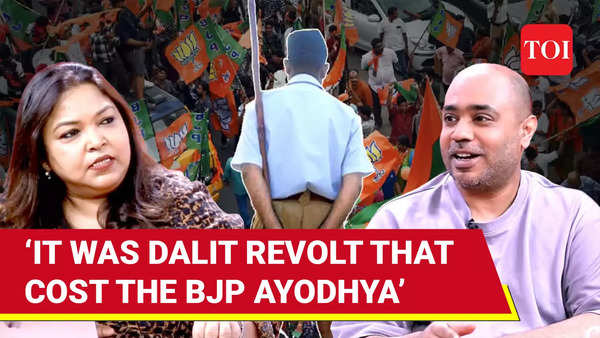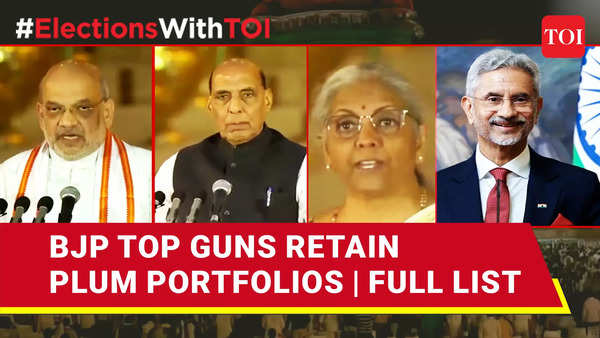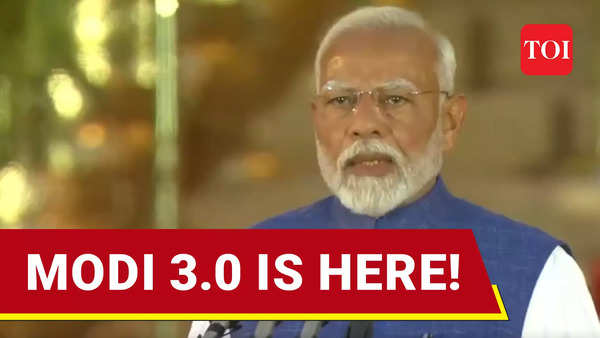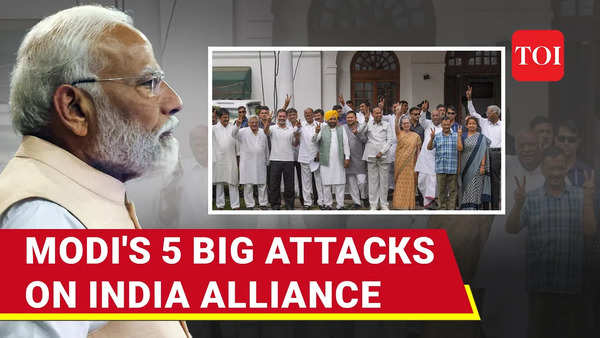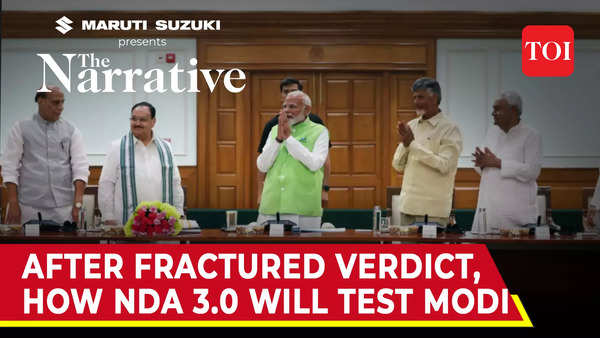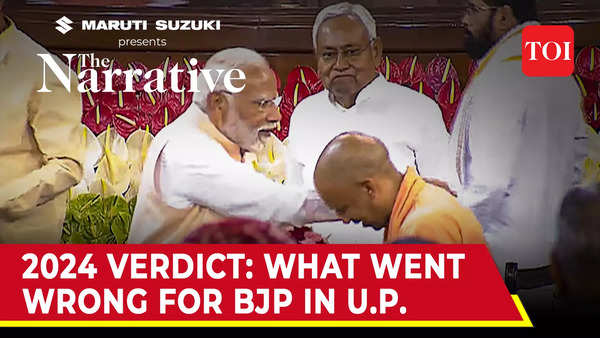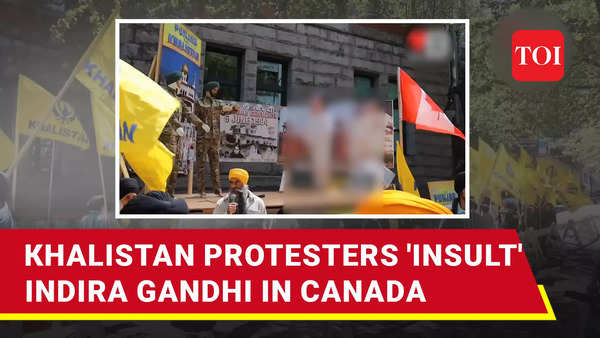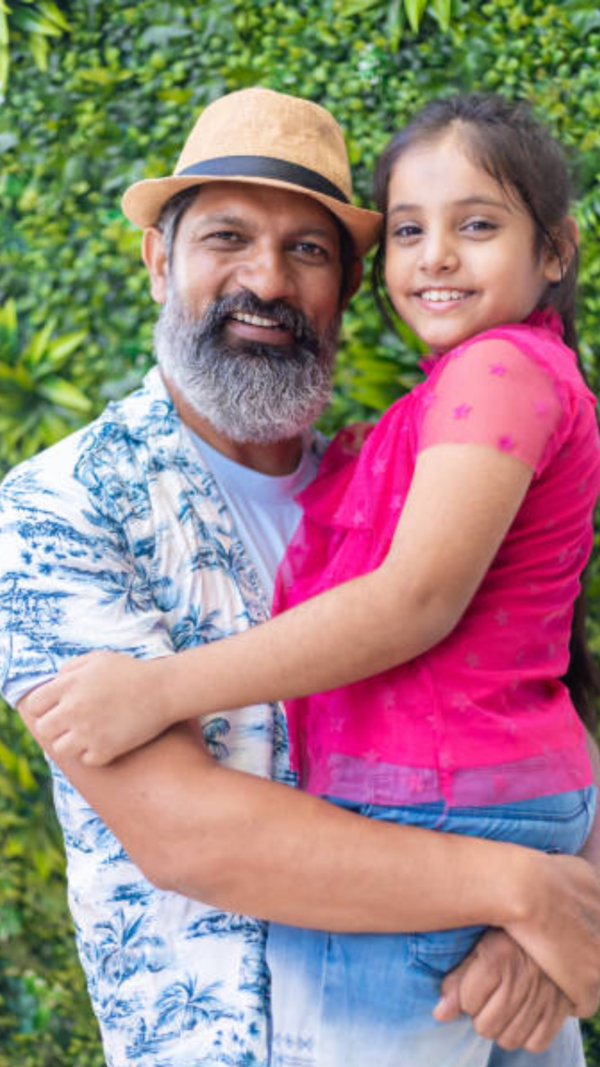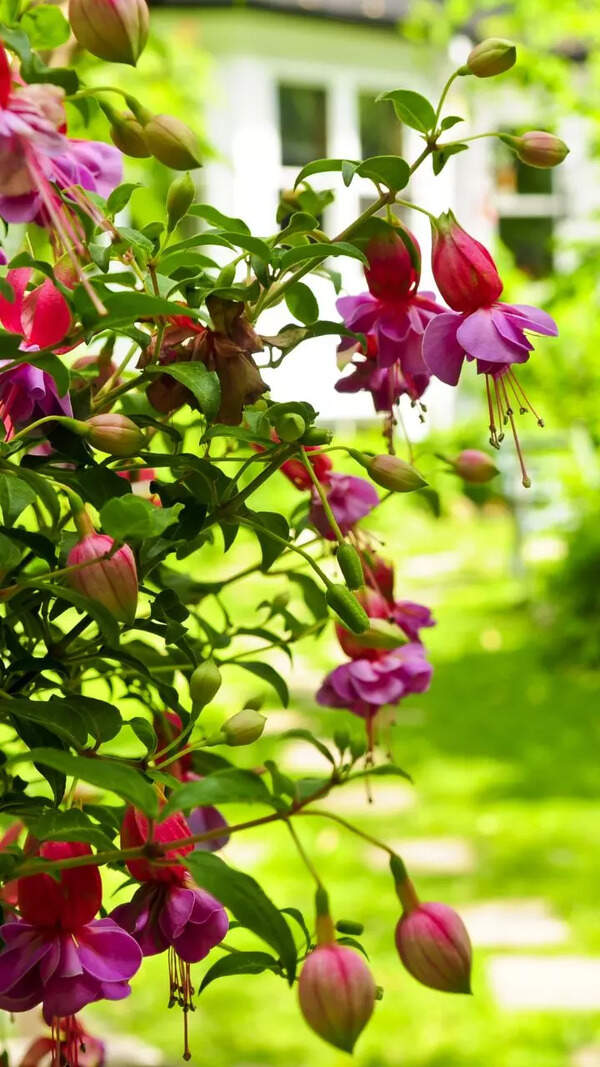- News
- India News
- In 15 seats in Bihar, same caste candidates have won in the last 4 Lok Sabha polls
Trending
In 15 seats in Bihar, same caste candidates have won in the last 4 Lok Sabha polls

NEW DELHI: Candidates of same castes have consistently been winning Lok Sabha elections from at least 15 of 40 parliamentary constituencies in Bihar in the past four polls since 2009, signalling why political parties in the state mostly prefer to stick to same winning castes in those seats. Seven of them are upper castes whereas six are OBCs and one each from EBC and Dalit.
Though two of these 15 seats went in favour of the same candidates (BJP’s Sanjay Jaiswal in Paschim Champaran and Radha Mohan Singh in Purvi Champaran), other 13 constituencies witnessed different winners of same castes over the past four elections with couple of them winning even twice or thrice.Jaiswal is Bania (OBC) whereas Singh is upper caste Rajput.
The number of such constituencies in Bihar was 18 during earlier three polls (2009, 2014 and 2019) but this time three constituencies - Aurangabad, Arrah and Samastipur - saw different castes winning the elections from those seats, reflecting how things change when political parties forge larger coalitions and opt for fielding candidates of different castes as part of an alliance. It happened in the past as well when a large churn took place post-Mandal politics in Bihar.
Aurangabad and Arrah seats had also gone to Rajput candidates in 2009, 2014 and 2019. The trend, however, broke this time when as part of a large coalitions, RJD’s Kushwaha candidate Abhay Kumar Sinha won from Aurangabad and CPI(ML-Liberation)’s Sudama Prasad (Bania, an OBC) won from Arrah, defeating BJP’s Rajput candidate and former Union minister R K Singh.
Other such constituencies which sent candidates of same castes to Lok Sabha are Nawada and Munger. Upper caste Bhumihar candidates have been winning elections from these two seats since 2009. This time, it went to BJP’s Vivek Thakur and JD(U)’s Rajiv Ranjan Singh alias Lalan Singh.
Darbhanga and Patna Saheb are other examples where upper caste Brahmin and Kayastha candidates, respectively, have been winning elections since 2009. In Darbhanga, Kirti Azad won in 2009 and 2014 and Gopaljee Thakur won in 2019 and 2024 whereas in Patna Saheb, Shatrughan Sinha won in 2009 and 2014, and former Union minister Ravi Shankar Prasad won in 2019 and 2024.
Besides these seven seats dominated by upper castes (three Rajputs, two Bhumihars and one each from Brahmin and Kayastha), six seats went in favour of OBCs’ candidates in the past four polls. Madhepura, Madhubani and Pataliputra won by Yadav candidates whereas Nalanda, Karakat and Paschim Champaran won by Kurmi, Kushwaha and Bania candidates, respectively.
Similarly, EBC Nishad candidate has been winning Muzaffarpur and Dalit Manjhi candidate has been winning Gaya consistently since 2009. In 2024, former state chief minister Jitan Ram Manjhi of HAM (secular) won from Gaya.
Though two of these 15 seats went in favour of the same candidates (BJP’s Sanjay Jaiswal in Paschim Champaran and Radha Mohan Singh in Purvi Champaran), other 13 constituencies witnessed different winners of same castes over the past four elections with couple of them winning even twice or thrice.Jaiswal is Bania (OBC) whereas Singh is upper caste Rajput.
Asked about the trend, Sanjay Kumar, professor at Centre for the Study of Developing Societies (CSDS) and an election analyst, said, "This is noticeable in the past over two decades. It happens because a specific caste has a sizable number in a particular constituency and it helps the candidate win the election. Political parties, therefore, prefer to bank on the same winning caste."
The number of such constituencies in Bihar was 18 during earlier three polls (2009, 2014 and 2019) but this time three constituencies - Aurangabad, Arrah and Samastipur - saw different castes winning the elections from those seats, reflecting how things change when political parties forge larger coalitions and opt for fielding candidates of different castes as part of an alliance. It happened in the past as well when a large churn took place post-Mandal politics in Bihar.
The 15 seats which witnessed the same caste candidate winning over the past four elections since 2009 include Maharajganj and Vaishali where Rajput candidates have been winning. Janardan Singh Sigriwal (BJP) and Veena Devi (LJP Ram Vilas) won in 2024. Though Sigriwal had won in 2014 and 2019 as well, Umashankar Singh of RJD from the same caste won in 2009. Similarly, Vaishali seat was won by Rajput candidates — RJD’s Raghuvans Prasad Singh in 2009, LJP’s Rama Kishore Singh in 2014 and Veena Devi in 2019.
Aurangabad and Arrah seats had also gone to Rajput candidates in 2009, 2014 and 2019. The trend, however, broke this time when as part of a large coalitions, RJD’s Kushwaha candidate Abhay Kumar Sinha won from Aurangabad and CPI(ML-Liberation)’s Sudama Prasad (Bania, an OBC) won from Arrah, defeating BJP’s Rajput candidate and former Union minister R K Singh.
Other such constituencies which sent candidates of same castes to Lok Sabha are Nawada and Munger. Upper caste Bhumihar candidates have been winning elections from these two seats since 2009. This time, it went to BJP’s Vivek Thakur and JD(U)’s Rajiv Ranjan Singh alias Lalan Singh.
Darbhanga and Patna Saheb are other examples where upper caste Brahmin and Kayastha candidates, respectively, have been winning elections since 2009. In Darbhanga, Kirti Azad won in 2009 and 2014 and Gopaljee Thakur won in 2019 and 2024 whereas in Patna Saheb, Shatrughan Sinha won in 2009 and 2014, and former Union minister Ravi Shankar Prasad won in 2019 and 2024.
Besides these seven seats dominated by upper castes (three Rajputs, two Bhumihars and one each from Brahmin and Kayastha), six seats went in favour of OBCs’ candidates in the past four polls. Madhepura, Madhubani and Pataliputra won by Yadav candidates whereas Nalanda, Karakat and Paschim Champaran won by Kurmi, Kushwaha and Bania candidates, respectively.
Similarly, EBC Nishad candidate has been winning Muzaffarpur and Dalit Manjhi candidate has been winning Gaya consistently since 2009. In 2024, former state chief minister Jitan Ram Manjhi of HAM (secular) won from Gaya.
End of Article
FOLLOW US ON SOCIAL MEDIA

